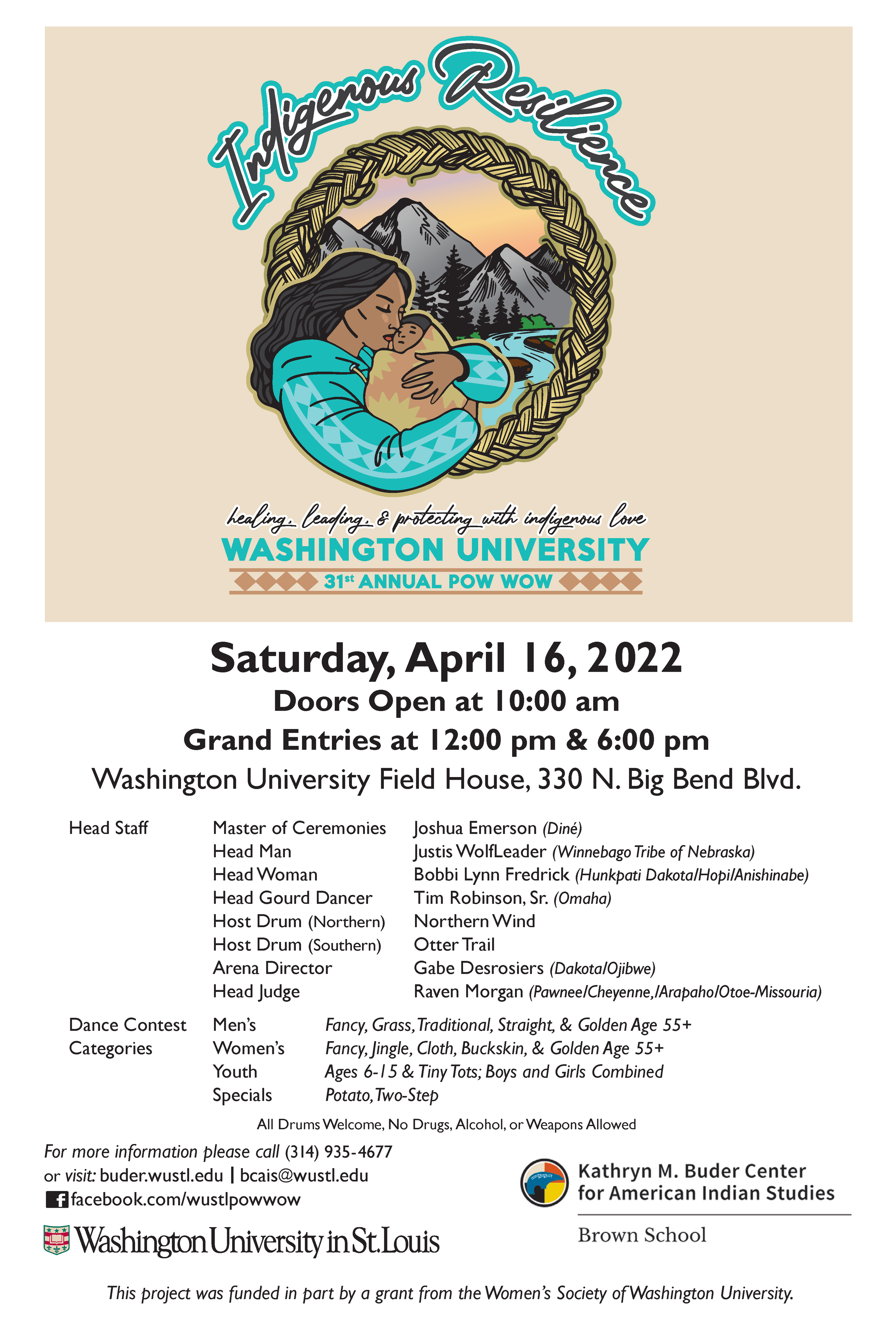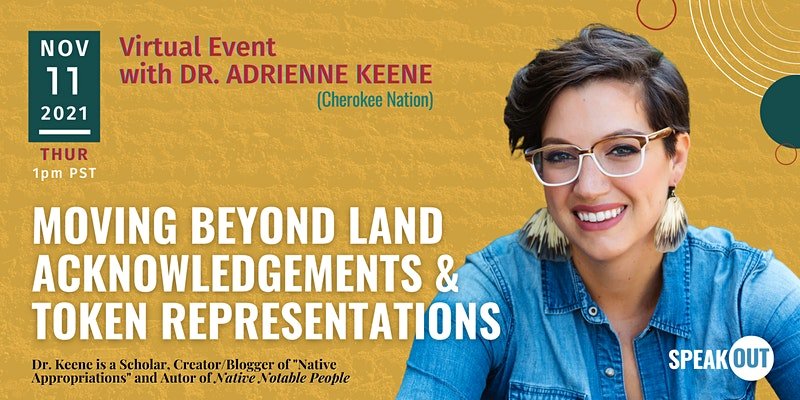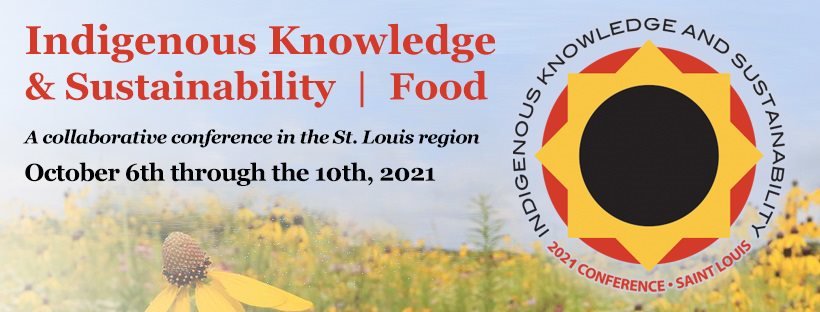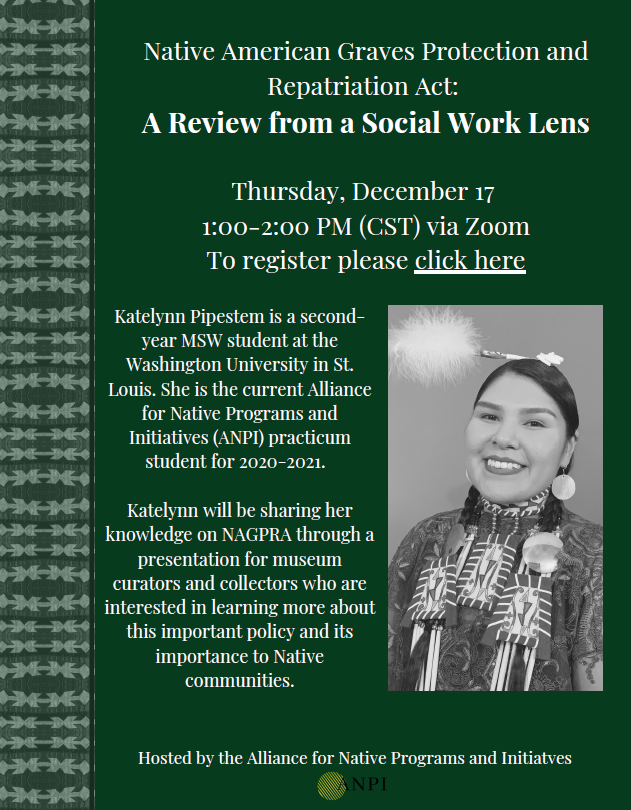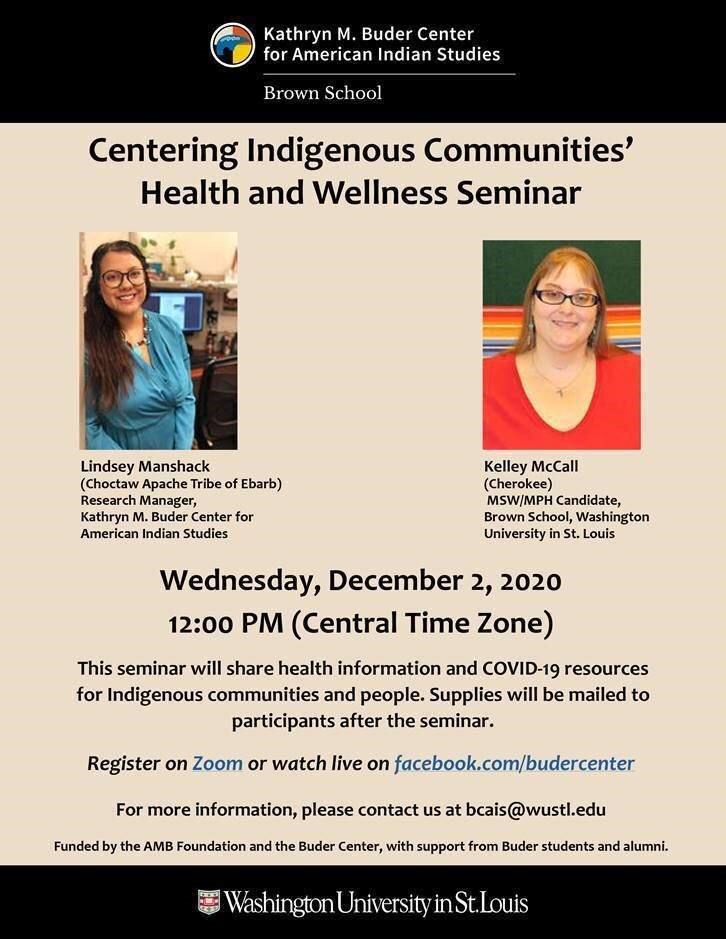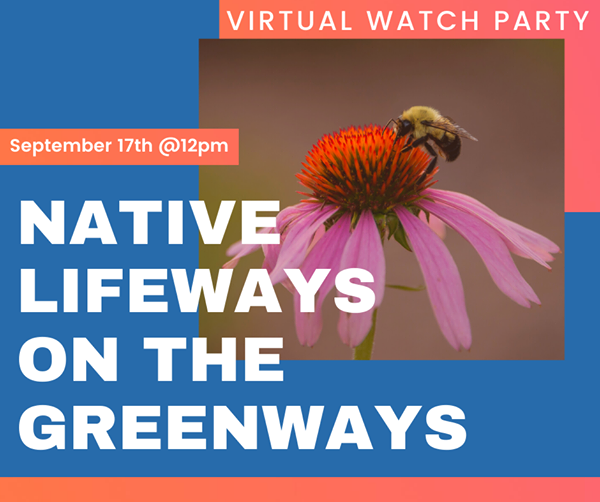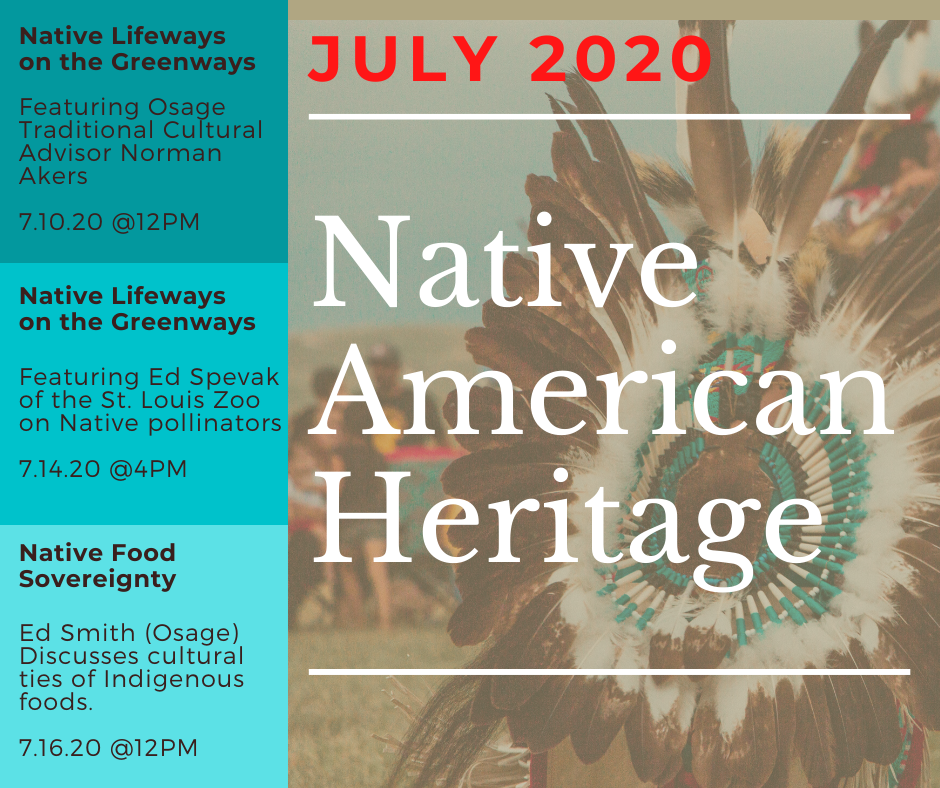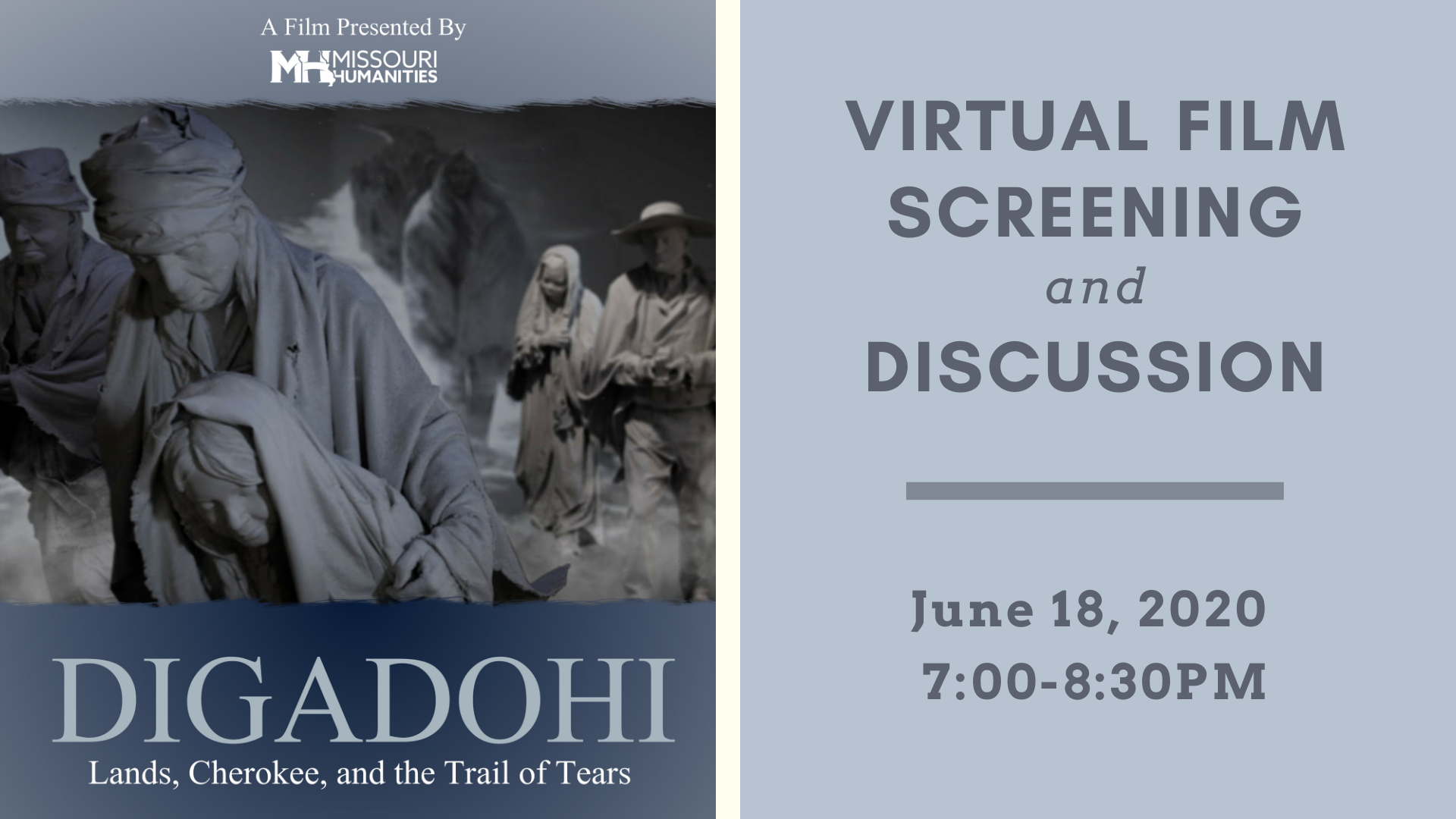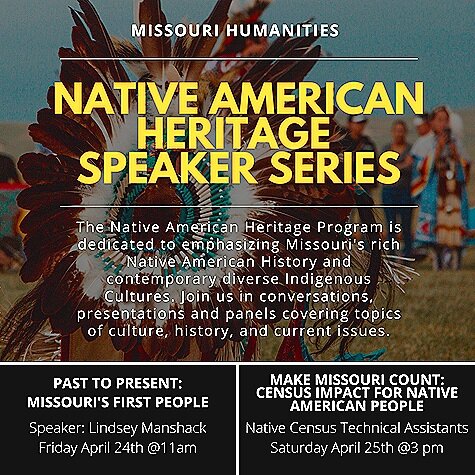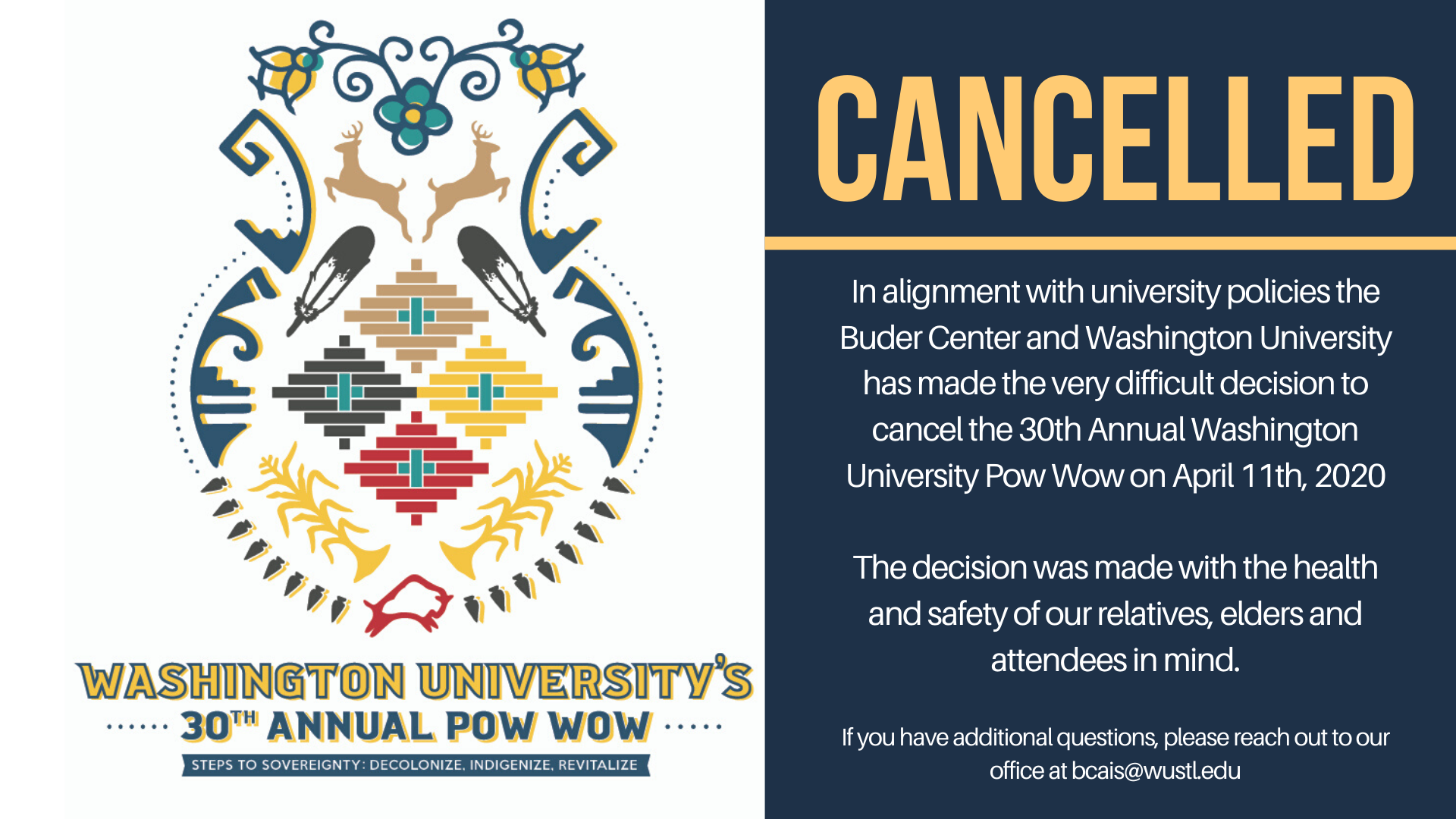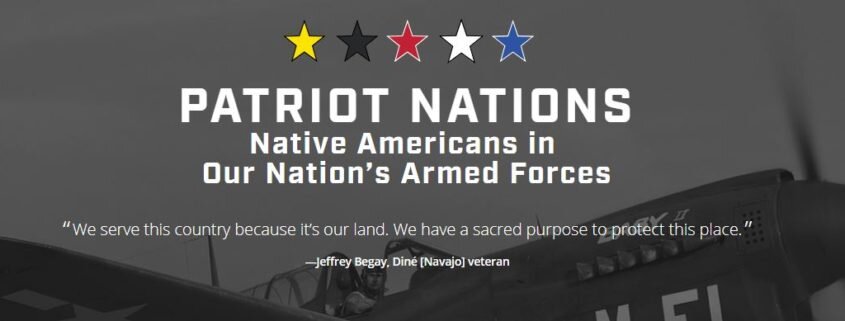Past Events
Native American Art of the 20th Century: The William P. Healey Collection
February 23–July 14, 2024
Location: St. Louis Art Museum- Gallery 235 and the Sidney S. and Sadie M. Cohen Gallery 234
Cost: Free
Native American Art of the 20th Century: The William P. Healey Collection celebrates a transformative gift of outstanding works by Native American artists active across the 20th century. The promised gift of 100 works establishes a critical junction between the Museum’s deep collection of Indigenous art pre-1920 and a growing emphasis on the contemporary.
For the first time with this exhibition, the Saint Louis Art Museum shares the remarkable, intergenerational story of modern Indigenous painters and sculptors who first developed then revolutionized the movement for Native American fine art.
Beginning in the 1920s largely self-taught artists such as Fred Kabotie, Tonita Peña, and Carl Sweezy established professional careers as easel painters in New Mexico and Oklahoma. Soon after, instructors trained Native students in the emerging genre of Native American painting. The Healey collection also charts significant changes to Native studio art following World War II. In 1962 the founding of the Institute of American Indian Arts (IAIA) in Santa Fe helped expand the range of Native art practices, bringing the field in direct conversation with mainstream styles and media. The exhibition will showcase leading IAIA artists Fritz Scholder and T. C. Cannon.
Native American Art of the 20th Century: The William P. Healey Collection is cocurated by artist Tony Abeyta and Alexander Brier Marr, associate curator for Native American art.
Artists in Conversation: Jaune Quick-to-See Smith and Neal Ambrose-Smith
Saturday, May 4, 2024 | 11 am–noon CDT | Free
Long recognized for her singular vision, Jaune Quick-to-See Smith (Enrolled Salish, Confederated Salish and Kootenai Nation) is among the foremost contemporary artists. During this conversation with her son, artist Neal Ambrose-Smith, Jaune Quick-to-See Smith will speak about her wide-ranging artistic practice, highlighting two artworks the Museum recently acquired. State Names Map: Cahokia and Trade Canoe: Cahokia deploy key icons from her decades-long career to examine deep histories of trade and displacement in the St. Louis region.
The American Experience through Storytelling
LOCATION: Lee Auditorium and MacDermott Grand Hall | Missouri History Museum
DATE: Thursday, October 19, 2023
TIME: 5:30pm–8:00pm
Storyteller Dovie Thomason, a Lakota and Kiowa Apache, utilizes the art form of traditional Native storytelling. When Dovie tells stories from her own life and from her people’s experience, the result is a contemporary vision of the rich cultures of the First Nations of North America.
Two-time Moth StorySLAM winner Jitesh Jaggi is a recent immigrant from India. Growing up in Mumbai and traveling all over the world, he has learned through myriad experiences that despite our different backgrounds, our fears and hopes are surprisingly common.
Charlotte Blake Alston is an international storyteller who has graced stages in venues throughout North America and abroad. After 30 years of performing with the Philadelphia Orchestra, she was named its official storyteller, narrator, and host in 2021.
Convergence: Indigenous Exchange & Encounter
Opening Reception
Friday, August 4, 2023 from 5:00 pm to 7:00 pm
Location: Craft Alliance 5080 Delmar Blvd St. Louis, MO 63108
Meet the curators and artists and enjoy refreshments as we celebrate the exhibition opening.
Discover new perspectives on landscape, history, and the possibilities of printmaking in this remarkable exhibition showcasing contemporary Native artists. Experience St. Louis in a new light as a historic Indigenous hub of encounter and exchange, transcending its colonialist title, “Gateway to the West.” Revel in the evocative medium of printmaking, where artists masterfully layer imagery, text, and memories to explore themes such as migration, ancestry, and language.
This exhibition is organized by heather ahtone (Choctaw/Chickasaw), Director of Curatorial Affairs at Oklahoma City's First Americans Museum, and Marwin Begaye (Navajo), Professor of Painting and Printmaking at the University of Oklahoma's School of Visual Arts. They have collaborated with Jennifer Scanlan, Deputy Director at Craft Alliance, to bring this exhibition to life.
Convergence: Print Action
Saturday, August 5, 2023 from 10:00 am to 2:00 pm
Location: Craft Alliance 5080 Delmar Blvd St. Louis, MO 63108
Join curators heather ahtone and Marwin Begaye and exhibition artists for a community-centered printmaking demo and art project.
About the Exhibition:
Discover new perspectives on landscape, history, and the possibilities of printmaking in this remarkable exhibition showcasing contemporary Native artists. Experience St. Louis in a new light as a historic Indigenous hub of encounter and exchange, transcending its colonialist title, “Gateway to the West.” Revel in the evocative medium of printmaking, where artists masterfully layer imagery, text, and memories to explore themes such as migration, ancestry, and language.
This exhibition is organized by heather ahtone (Choctaw/Chickasaw), Director of Curatorial Affairs at Oklahoma City's First Americans Museum, and Marwin Begaye (Navajo), Professor of Painting and Printmaking at the University of Oklahoma's School of Visual Arts. They have collaborated with Jennifer Scanlan, Deputy Director at Craft Alliance, to bring this exhibition to life.
Native Storytellers Teach: Generative Workshops for Creative Wordsmiths
St. Louis Art Museum | Saturday, July 29, 2023 | 10 am–noon CDT
In conjunction with the exhibition Action/Abstraction Redefined: Modern Native Art, 1940s–1970s, SLAM is collaborating with the Institute of American Indian Arts (IAIA) and the St. Louis County Library for four small-group writing workshops. Native authors Abigail Chabitnoy, Deborah Jackson Taffa, Chip Livingston, and Layli Long Soldier will lead writing workshops at the Museum and multiple St. Louis County Library branches. The workshops are free, but space is limited and registration is required. See below for registration links.
Indigenous Voices: An Evening with Writers from the Institute of American Indian Arts
St. Louis Art Museum | Friday, July 28, 2023 | 6–7:30 pm CDT | Free
In conjunction with the exhibition Action/Abstraction Redefined: Modern Native Art, 1940s–1970s, the Saint Louis Art Museum is collaborating with the Institute of American Indian Arts (IAIA) for an evening with four Native authors. Abigail Chabitnoy, Deborah Jackson Taffa, Chip Livingston, and Layli Long Soldier will read selections of their work at the Kranzberg Arts Foundation’s literary café, High Low.
Action/Abstraction Redefined: Modern Native Art, 1940s–1970s, is the first exhibition at the Saint Louis Art Museum to focus on modern Native American art. Expanding the narrative of midcentury abstraction, the exhibition highlights groundbreaking paintings, sculptures, textiles, and works on paper that challenged stereotypical expectations of Native American art during the postwar era.
Tickets are not required for this event. This event will take place at the High Low, not at the Museum.
The authors will lead writing workshops at multiple Saint Louis County Library branches and the Museum on Saturday, July 29.
Water Acknowledgement With Anita Fields And Performance By The Wah.Zha.Zhe Puppet Theatre
DATE: SUNDAY, JULY 16, 2023
TIME: 10-11AM
LOCATION: SUGARLOAF MOUND
Join us at Sugarloaf Mound for a closing event of Counterpublic 2023 featuring a performance by The Wah.zha.zhe Puppet Theatre, a water acknowledgement with artist Anita Fields, and a conversation between Dr. Andrea Hunter (Osage Nation) and Fields, sited at her WayBack installation adjacent to the mound.
The Wah.zha.zhe Puppet Theatre is the creation of artist, curator, writer and Anita Field’s daughter, Welana Fields, in collaboration with stage director Russell Tallchief, playwright Candice Byrd-Boney, puppet designer Christopher Lutter-Gardella of Big Animal Productions, sound designer Nokosee Fields, and the Osage community members who helped make the puppets and perform in the play. Conceptualized to celebrate the 150-year anniversary of the establishment of the Osage Reservation in Pawhuska, Oklahoma, Sky E.ko and Her Ni.ka.she (Sky Grandma and Her People) narrates Osage history from creation to the present through a suite of larger-than-life animals. A buffalo, swan, elk, wolf, and other animals unfold a different momentous event in Osage life along with the deep and complex cosmologies and worldviews are interwoven into these histories.
These closing events at Sugarloaf Mound underscore Counterpublic’s ongoing commitment with the Osage Nation to support the rematriation of the mound as a core component of the Counterpublic 2023 exhibition.
The closing performances are presented with support from the Tulsa Artist Fellowship and the Osage Nation Foundation.
Artists in Conversation: Action/Abstraction Redefined
St. Louis Art Museum | Friday, June 23, 2023 | 6–7:30 pm CDT | $5 (Free for Members)
To celebrate the opening of the exhibition Action/Abstraction Redefined: Modern Native Art, 1940s–1970s, three artists whose artwork is featured in the exhibition will discuss their time at the Institute of American Indian Arts and reflect on how it shaped their work. Alexander Brier Marr, SLAM’s Associate Curator for Native American Art, will moderate the discussion with artists Anita Fields, Linda Lomahaftewa, and Alfred Young Man.
This program will be offered in person at the Museum and will also be livestreamed. See below for ticketing and registration information.
Native Plants, Native People, Native Pollinators: An Indigenous Way of Thinking and Acting
Presenter: Ed Spevak, Ph.D.
Topic: Dr. Spevak will discuss using the 4 R’s of indigeneity in relating to the environment and even to our own gardens
Tuesday, February 21 @ 7PM
Location: Webster University; Browning Hall/Interdisciplinary Science Building (ISB) Auditorium- 8274 Big Bend Blvd, St. Louis, MO 63119
Between the Lines: Mark Making on the Plains, 1872–2022
Saturday, October 22, 2022 | 11 am–noon CDT | Free
The annual Donald Danforth Jr. Lecture on Native American Art will be given by Christina E. Burke, Curator of Native American Art, Philbrook Museum of Art.
Dakota and Lakota artists have always created bold geometric designs using pigments, quills, and, later, glass beads. With historical works in the Danforth Collection as a foundation, Burke will illustrate aesthetic and cultural connections between 19th-century art and the innovative Abstract paintings of Oscar Howe in the 20th century and Dyani White Hawk today.
Artist Talk: Cara Romero
St. Louis Art Museum | Saturday, June 11 | 11 am–noon CDT
An enrolled citizen of the Chemehuevi Indian Tribe, artist Cara Romero’s identity informs her photography, a blend of fine art and editorial photography, shaped by years of study and a visceral approach to representing Indigenous and non-Indigenous cultural memory, collective history, and lived experiences from a Native American female perspective. Romero will speak about her process, influence, and her photograph Coyote Tales No.1, which is currently on view at the Museum.
A closed-captioned recording of the program will become available on the Museum’s website and YouTube channel in the weeks following.
Decolonizing Mindfulness, Mindful Decolonization, and Social Work Futurities
Dr. Michael Yellow Bird
In collaboration with the Mindfulness Working Group at WashU, the Center for the Study of Race, Ethnicity & Equity and the Kathryn M. Buder Center for American Indian Studies, we proudly present Dr. Michael Yellow Bird pioneering work on Indigenous Mindfulness. This presentation will draw from Yellow Bird's most recent article, "Decolonizing Mindfulness, Mindful Decolonization and Social Work Futurities." In this presentation, Yellow Bird will discuss the positive effects of mindfulness interventions and how they can support social work values, healing practices, and improve well-being. He will also discuss how mindfulness is being co-opted, privatized, and colonized by the forces of neoliberal capitalism (Purser, 2019) and is being used to “pacify feelings of anxiety and disquiet at the individual level rather than seeking to challenge the social, political, and economic inequalities that cause such distress” (Carrette & Kind, 2004, p. 22] ). The presentation will conclude by sharing how mindfulness can be decolonized and moved towards practices designed to engage practitioners in systems change.
Native Women & Political Activism
SERIES: Thursday Nights At The Museum | View All Series Dates
LOCATION: Museum
DATE: Thursday, November 18, 2021
TIME: 5:30 PM - 8:00 PM
Join Dr. Elizabeth Rule, Assistant Professor of Critical Race, Gender, and Culture Studies at American University, as she discusses how Native women have long shaped the course of Indigenous political history. In addition to holding traditional roles as matriarchs, Indigenous women are also informing tribal policy as feminist thought leaders and elected officials. Nevertheless, Native women have been targeted in violence across the United States for centuries under settler colonialism. This talk discusses a range of historical and contemporary Native women’s issues—including the Missing and Murdered Indigenous Women & Girls—and examines the Indigenous-led movements and policy initiatives supporting Native women today.
Art Speaks: Cosmic Geometry in Anishinaabe Textiles
Friday, November 5 | noon–1 pm CDT | Free
To the Western eye, geometric patterns of repeating triangles or lozenges have little meaning. In this program Cory Willmott, professor of cultural anthropology at Southern Illinois University Edwardsville, will take us on a journey through the spiritual cosmos in Anishinaabe art and reveal its significant symbolism in the geometric motifs woven into textiles in the exhibition Woodlands: Native American Art from St. Louis Collections.
A series of virtual events to advance research and education in indigenous knowledge and sustainability in the region. Sponsored by Missouri Botanical Garden, the Saint Louis Zoo, the Kathryn M. Buder American Indian Studies Center at Washington University in St. Louis, the Whitney R. Harris World Ecology Center at University of Missouri-St. Louis, the Native American Studies Program at Southern Illinois University Edwardsville, the Center for Spirituality & Sustainability at SIUE, and SIUE's College of Arts & Sciences.
Land acknowledgments for organizations are vital to honoring our rich Native American Heritage in Missouri. For the Missouri Bicentennial, Missouri Humanities is working to highlight the vital role land acknowledgments can bring to the people, places, and ideas that shape and impact our society. With the American Wild Ensemble and partners, we facilitate simple approaches on how organizations can work to respectfully weave meaningful land acknowledgments into their structure. To view the recording, please visit https://fb.watch/5l79jYs8kH/.
Climate Change, Water Security, and Resilience
Clarita Lefthand-Begay, Assistant Professor, University of Washington, and Director of the Tribal Water Security Project
Lefthand-Begay, a citizen of the Diné Nation, is an assistant professor at the University of Washington and the director of the Tribal Water Security Project. She researches the protection of indigenous knowledge and climate health.
When: February 23, 2021 at 5pm CT
With the Kathryn M. Buder Center for American Indian Studies
Title: Rooted in Relations: Native Peoples’ histories and lifeways in Missouri
Description: What does it mean to have Native American roots and connections in Missouri? We explore Native American connections through educational information on Missouri’s Native American Heritage historically while engaging with an interactive panel conversation of Native American Missourians. In collaboration with the Kansas City Indian Center and Four Directions at University of Missouri-Columbia, we engage with topics on what it’s like to grow up Native in Missouri while engaging with cultural and tribal relations.
Click on the video link above to watch Series Three of Native Futures, Native Voices
Click on the video link above to watch Series Two of Native Futures, Native Voices
Click on the video link above to watch Series One of Native Futures, Native Voices
Indigenous history and knowledge are passed on in many ways; one way is through storytelling. The act of storytelling, the content within a story and the process in which listeners engage with the storyteller are all equally important as knowledge is shared and learned.
Date: November 17th, 2020
To watch the video please visit the Buder Center Facebook Page under the videos section
For questions about the event or video please contact: bcais@wustl.edu
Indigenous Resurgence is our stories as we keep, live, and breathe them now, in a good way. Join us for our virtual inaugural Native Historian Symposium "The Future of the Past: The Next Generation of Native Historians"
Date: November 11th, 2020
For questions about the event contact: melody@mohumanities.org
Historically, school books and literature have been written from the pioneer perspective. Today's publishers are citing a need for Native told stories about America's diverse tribal cultures. Deb Taffa covers their search for histories as well as contemporary issues, as well as the difference between "learning, identifying, and exploring" categories in Native literature--and why it matters to kids (from all cultures).
Date: September 23, 2020
Time: 12:00 pm - 1:00 pm
Zoom Registration: https://us02web.zoom.us/webinar/register/WN_ozpchW4nQrKzz_0xsbWu0Q
Native Lifeways on the Greenways Docuseries Release Party
The Docuseries watch party was hosted by the Missouri Humanities Council which released as a culmination of the Native Lifeways on the Greenways partnership with Great Rivers Greenway.
Host: Missouri Historical Society
Date: 09/17/20
Time: 12:00PM
Missouri Humanities Council in partnership with Great Rivers Greenway presented:
A discussion of Osage history with Norman Akers of the Osage Nation A continued session with Ed Spevak from the St. Louis Zoo about Native Pollinators Information on Native Food Sovereignty with Ed Smith from the Kansas Indian Center
For upcoming events, please visit: https://mohumanities.org/
Reflecting on Native American Resilience in the Era of Coronavirus
Host: Missouri Historical Society
Date: 07/07/2020
Time: 11:00am
Deborah Taffa, an enrolled member of the Quechan (Yuma) Nation and Laguna Pueblo tribes, reflects on her ancestors in relation to the 2020 pandemic. Because of their unique relationship with nature—and the absence of domesticated animals in their cultures—Native American people did not have antibodies to fight against many common diseases when Columbus and other explorers first arrived on this continent. Never has this history and its impact on Native traditions, life ways, family structures, and the wisdom of the culture’s sustenance practices been so pertinent to current events.
For additional information, Please visit Missouri Historical Society: https://mohistory.org/society
Indigenous Futurisms: Reimagining the Arts & Humanities
Date 07/01/2020
Host: Missouri Humanities Council
Indigenous Futurisms voices the Arts and Humanities using dynamic expressions to engage people regarding Indigenous People’s lived experiences from their origins through current times, while envisioning their futures. Native American Heritage Program Coordinator Melody Delmar (Navajo) facilitates a discussion with Maria Hupfield, MFA (Anishnaabe, Wasauksing First Nation, Ontario, Canada).
About the Artist: Maria Hupfield is a transdisciplinary artist working in Performance and Media Arts. She was awarded the Hnatyshyn Foundation prize for outstanding achievement by a Canadian mid-career artist (2018) and a Lucas Artists Fellowship in Visual Arts, Architecture & Design, Montalvo Arts Centre (2019-2020). Hupfield is a Guest Curator for the Artist of Color Council Movement Research at Judson Church Winter 2020 Season, and an inaugural resident of the Surf Point Foundation Residency 2020. Her solo Nine Years Towards The Sun at the Heard Museum, Phoenix Winter (2019) focuses on exhibiting performance as living culture and follows her first major institutional solo exhibition in Canada The One Who Keeps on Giving a production of The Power Plant Contemporary Art Gallery, Toronto. Her work has shown at the Museum of Arts and Design, BRIC, Smithsonian National Museum of the American Indian, represented Canada at SITE Santa Fe (2016), and travelled nationally with Beat Nation: Art, Hip Hop and Aboriginal Culture (2012-14); with recent performances at the National Gallery of Canada. Hupfield is an off-rez citizen of Wasauksing First Nation, Ontario, Anishinaabe Nation, and the recently appointed Canadian Research Chair in Transdisciplinary Indigenous arts at the University of Toronto.
Follow the link to view the live event on MHC’s Facebook Page:
For additional information, Please visit Missouri Humanities Council: https://mohumanities.org/
COVID-19 & Race Series: Native Communities & COVID – Reflections of the Past & Outlooks for the Future
COVID-19 is disproportionately affecting Native communities across the United States. While these communities are not new to devastation from disease, trauma, and broken treaties, this latest public health crisis reveals deep roots of systemic injustices that have spanned hundreds of years.
Part IV of the series features Native professionals who will shed light on how the pandemic is impacting the communities that they are connected to and serve. Panelists will offer their perspectives on the disproportionate effects on Native people, what it means for our nation, and how we work together to create a healthy, equitable future for the next generation.
Guest Speakers: Carol Colmenero (Navajo) | Family Advocacy Director, Salt River Pima-Maricopa Indian Community Sonya Tetnowski (Makah) | Chief Executive Officer, Indian Healthcare Center of Santa Clara Valley Robert McGhee (Poarch Band of Creek Indians) | Vice Chairman, Creek Indian Tribal Council Jenifer Van Schuyver (Citizen Band Potawatomi) | Research Assistant, Kathryn M. Buder Center for American Indian Studies
When: Tuesday, June 23rd, 10:00 am (CT)
For Upcoming Open Classrooms, please visit: https://brownschool.wustl.edu/Resources-and-Initiatives/Open-Classroom/Pages/Upcoming-Offerings.aspx
Digadohi: Lands, Cherokee, and the Trail of Tears documentary screening and panel discussion with film maker Monty Dobson and Historical Archeologist Erin Whitson.
“DIGADOHI" means "lands" in Cherokee. The story of the Cherokee's removal from their homeland is recorded in the archaeology at places like the Snelson-Brinker farm in Missouri, and in the traditions and family histories of the Cherokee today. On July 4th, 2017 the historic Snelson-Brinker cabin was burnt to the ground. Using cutting edge archaeological methods and archival research, a group of community activists and Cherokee leaders worked to rescue a historic property from the arsonist's flames and identify the graves of the Cherokee who died there on the Trail of Tears. Filming for DIGADOHI began in November of 2017 at archaeological and historic sites along the route from Cherokee homelands in the East, to Oklahoma. The film chronicles a year of those investigations and weaves the family stories - European, African, and Native - that were unearthed there into the national story of America. Ultimately The Cherokee story is one of survival and passing on a living culture and tradition to their children.
For additional information, Please visit: https://mohumanities.org/
Postponed
For Further Information, Please Visit
POSTPONED: Patriot Nations Culminating Event
Hosted by: Missouri Humanities Council
Date & Time: TBD
As we follow the ever-changing landscape of our current public health situation concerning the global outbreak of the Coronavirus (COVID-19) all public programs remain open unless otherwise stated on the calendar event page located on Missouri Humanities Council’s website.
For more information & updates visit: https://mohumanities.org/
30th Annual Washington University in St. Louis Pow Wow
Hosted by: Kathryn M. Buder Center for American Indian Studies & Washington University Pow Wow Committee
In light of the global outbreak Coronavirus (COVID-19) and the commitment to the health and safety of our campus and broader community, the University has implemented a number of policies that restrict campus-sponsored events, travel and visitation. In alignment with those policies, the Buder Center and Washington University has made the difficult decision to cancel the 30th Annual Washington University Pow Wow on April 11, 2020. We are deeply saddened to share this news with you but the decision was made with the health and safety of our relatives, Elders and attendees in mind.
For more information visit: https://sites.wustl.edu/budercenter/30th-annual-washington-university-pow-wow/
Patriot Nations Exhibit Showing – Kansas City
Hosted by: Missouri Humanities Council
Location: Kansas City Public Library – Plaza Branch
February 11th – March 17th.
Patriot Nations exhibit is a traveling exhibition from the Smithsonian National Museum of the American Indian at the Kansas City Public Library. Visitors to Patriot Nations exhibit will learn how Native American servicemen and women served to protect and defend the United States, through a series of engaging and historic photographs and narrative.
For more information & updates, visit: https://mohumanities.org/
Being Cherokee: American Indians in Missouri
Hosted by Missouri Humanities Council and Lutheran Indian Ministries
This presentation provided Mineral Area College students an overview of American Indians and the story of the Cherokees up to the present day, explaining how they came to cross Missouri on the Trail of Tears.
Three Sisters Garden at the Saint Louis Zoo
Hosted by the Saint Louis Zoo and the Buder Center
A “Three Sisters Garden” has been created in the Saint Louis Zoo for Indigenous communities to use as a community garden.
Eighth Donald Danforth Jr. Annual Lecture in Native American Art
Hosted by the Saint Louis Art Museum
Lecture Title: “Trading Women: Beads, Cloth, and Innovation on the Northern Plains” presented by Sherry Farrell Racette, Associate Professor, Department of Visual Arts, Media, Art and Performance (MAP), University of Regina.
American Indian Movement: Civil Rights in Native Communities
Hosted by the Missouri History Museum and the Buder Center
The story of American Indian Rights is written into the fabric of the American history. This program will look back at the legal battles, policies, treaties, and protests in American Indian history, culminating with ongoing American Indian rights activities around the country, including protests at the Dakota oil pipeline. Krystian Sisson, Muscogee Creek, MSW student at Washington University’s Brown School, will discuss the role that policies play in the lives of American Indian communities. She will be followed by a panel of students who will discuss civil rights issues within their tribal communities.
Hunt. Fish. Gather.
Logo by Tina Sparks, Pueblo and Hunka Lakota descent
Nakikara. Hohigisik. Stohi.
Hunt. Fish. Gather.
Monday, November 18, 2019
6:00 pm
The Living World, St. Louis Zoo
Squash Bee Level Sponsors ($3,000 contribution): Buder Center, Sandra and Virgil Van Trease, Missouri Humanities Council, Saint Louis Zoo
Bear Level Sponsor ($500 contribution): Explore Green, Mary Brong and Ed Spevak
About Hunt. Fish. Gather.
The Hunt. Fish. Gather. program was created by Buder Center students and the Buder Center in collaboration with Washington University Dining Services in 2013. Historically, the project has provided education to the Washington University and local native community on a more holistic model of health and wellness, with a focus on traditional Native foods, unlike what is currently represented in much of Westernized society.
Native people have an intimate relationship with the natural world as evidenced by their culturally traditions and language. Over the years, the language of the Hunt. Fish. Gather. program has been translated to the many different Native languages of Buder Center students. The language for the 2019 Hunt. Fish. Gather Program has been translated into the Ho-Chunk language.
This year, the Hunt. Fish. Gather. program has evolved in scope and purpose: the event serves as the formal beginning of the Alliance for Native Programs and Initiatives (ANPI).
This Year’s Chef
Photo by Mark Woodard
Freddie Bitsoie is a Diné (Navajo), Native American Chef, and the owner of FJBits Concepts, a firm that specializes in Native American food ways. He is the Executive Chef of The Mitsitam Native Foods Café (Mitsitam means “Let’s Eat” in the Delaware language), the restaurant of The Smithsonian Museum of the American Indian in Washington, D.C. Freddie has traveled the country, making presentations for organizations and companies such as Kraft Foods, The College of Holy Cross, Yale University, and the Heard Museum in Phoenix, AZ. He has been featured in and also contributes to Indian Country Today.
As an indigenous chef, Freddie sees the revival of native cuisine from its core elements—the ingredients. “For hundreds of years, ingredients hardly ever changed, yet cultures and trends changed all time. Why try to explain food from ever changing ideals? Let’s observe food from the ever non changing ingredient. That point of view is far more delicious and realistic.”
Freddie attended the University of New Mexico, majoring in cultural anthropology with a minor in art history before attending culinary school. Today, he is one of the most sought after and renowned Native American chefs and native foods educators in the country. He has been featured in the New York Times, National Public Radio, Cowboys and Indians, and America, The Cook Book.
Past Hunt. Fish. Gather. Chefs
Hillel Echo-Hawk (Pawnee and Athabaskan) was born and raised in the interior of Alaska. Echo-Hawk is dedicated to the food sovereignty of Native Peoples and is committed to empowering all Indigenous Peoples by increasing knowledge of an access to traditional diets and foods. After receiving her Bachelor's degree in Culinary Arts from Seattle Central College, Echo-Hawk has been working as a chef in some of Seattle's most innovated and popular restaurants for several years. She has also worked as a private chef, catering various events from the local Native non-profits and Native community events with pre-colonial, Indigenous meals. Hillel is a sister, aunt, daughter, and active member of her community.
Nephi Craig (White Mountain Apache and Navajo) works as a Nutritional Recovery Program Coordinator and Executive Chef at the Rainbow Treatment Center in Arizona. He has extensive experience as a chef, traveling nationally and internationally to the UK, Germany and Japan. He is the founder of the Native American Culinary Association, an organization dedicated to the research, refinement, and development of Native American cuisine. Nephi has also published pieces about the current state and evolution of Native American culinary traditions affected by hunting, fishing and agricultural rights, as well as United States and Indian relations in Native history. In his current position, Nephi connects Native cuisine knowledge to the process of recovery for his clients, focusing on culture and food as a way to heal.










